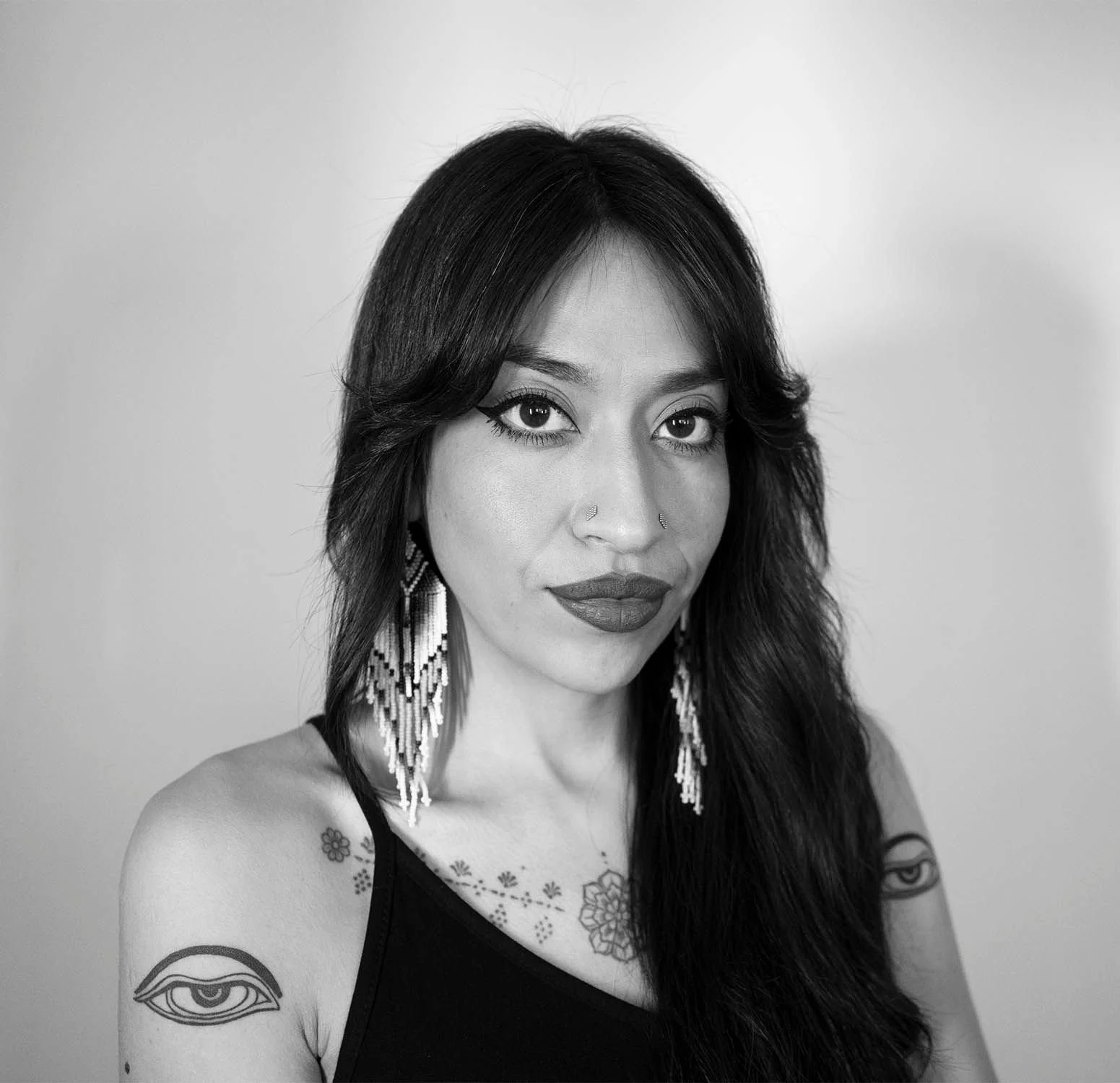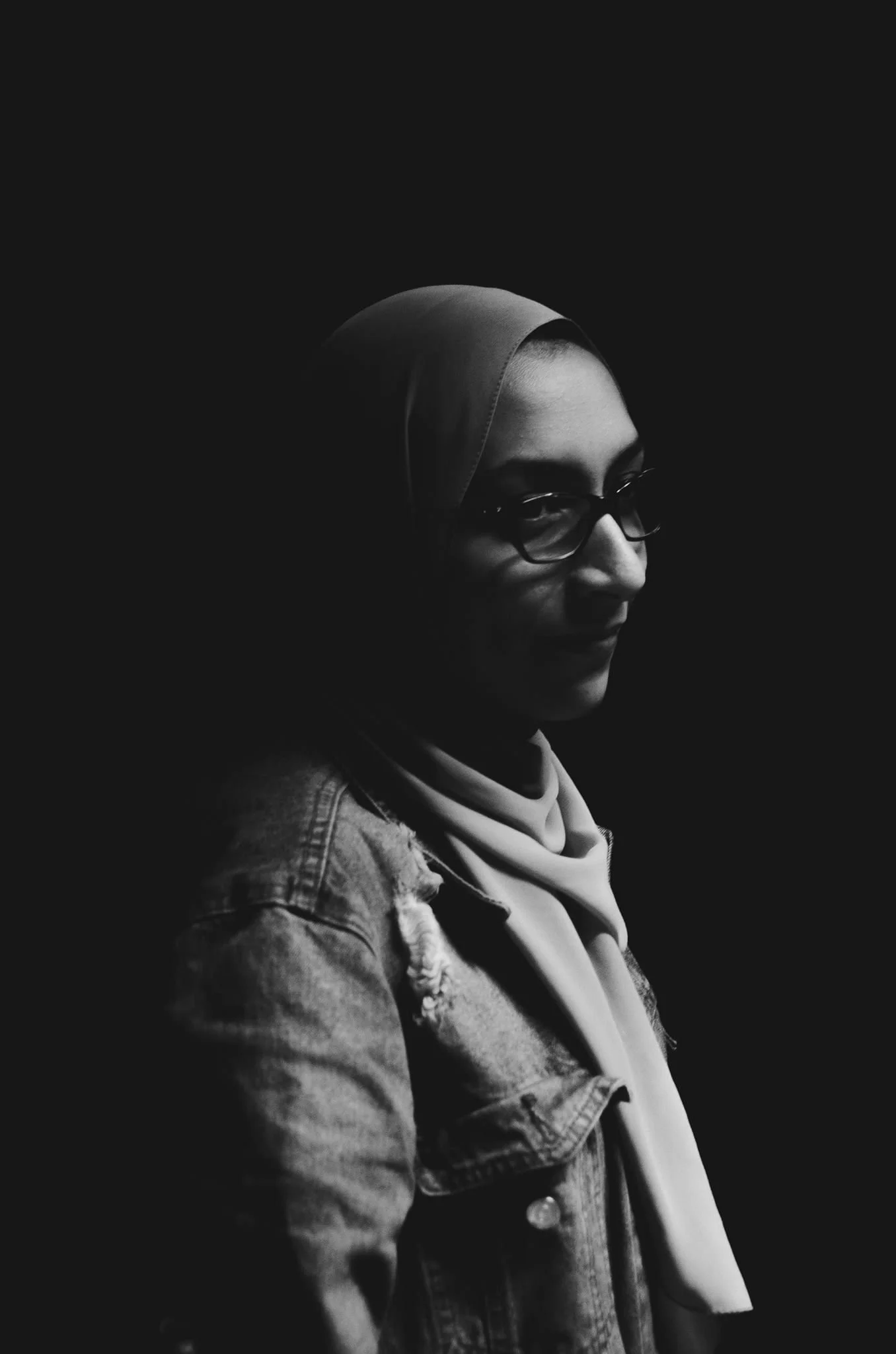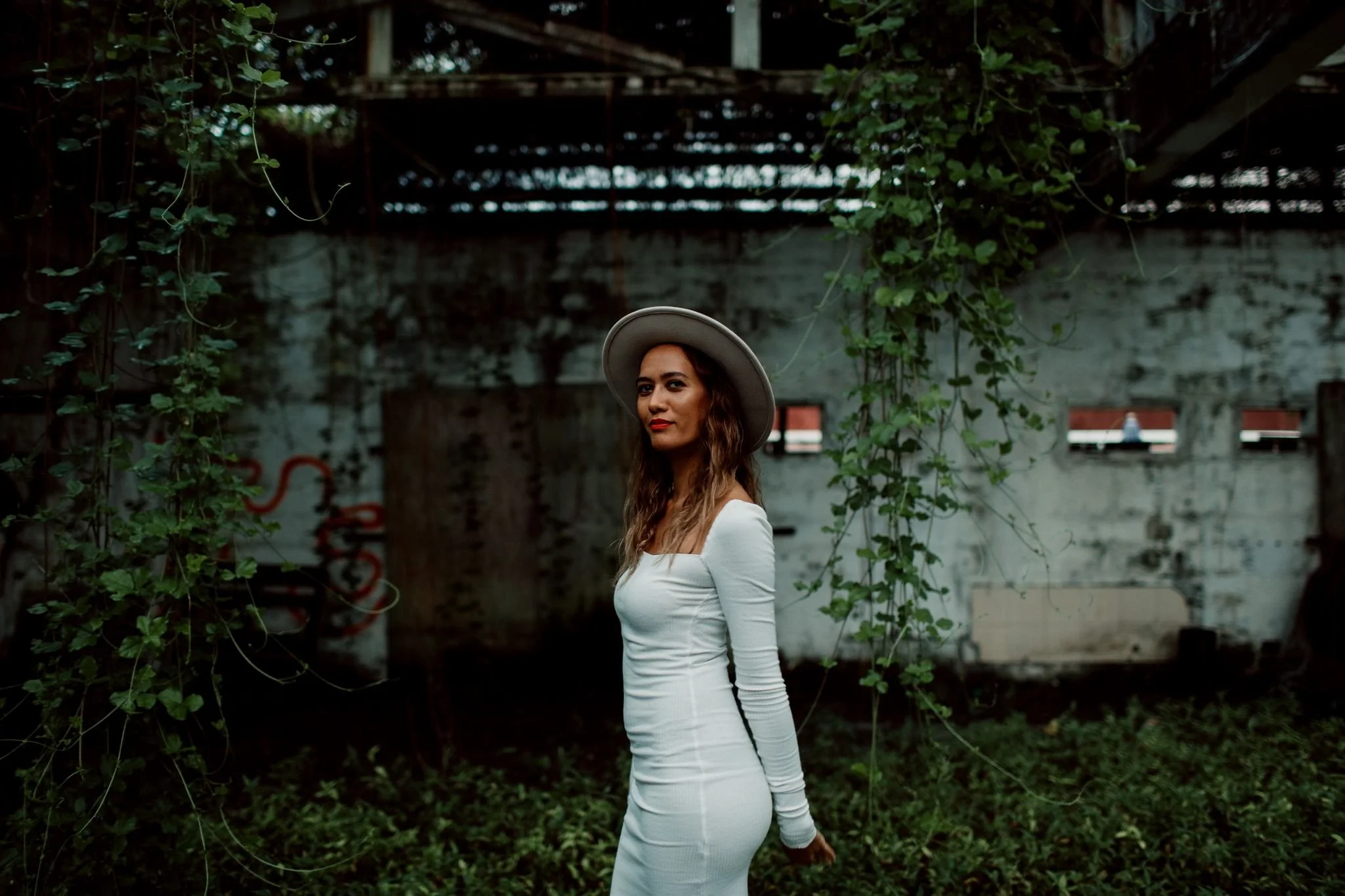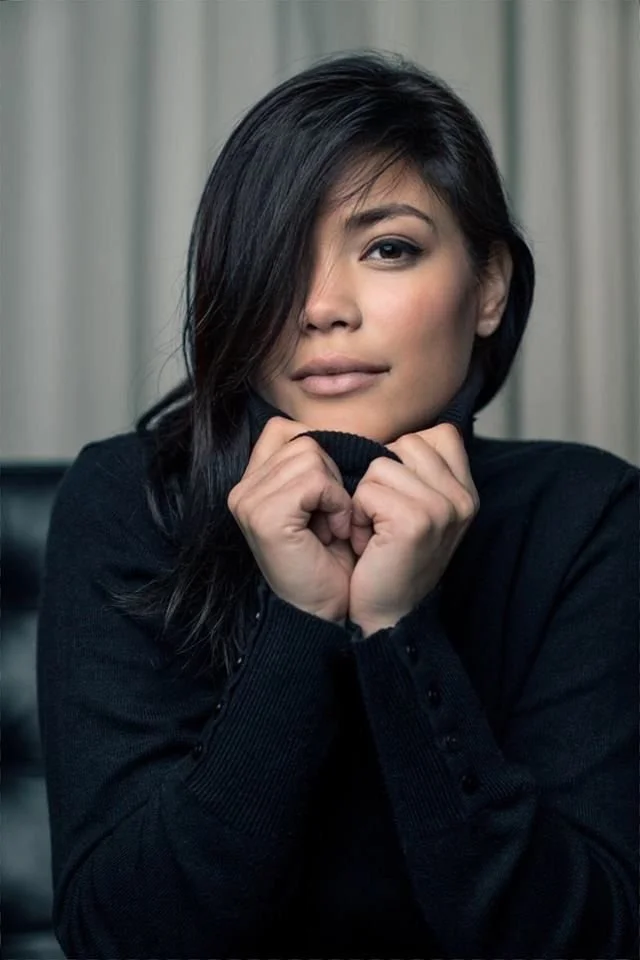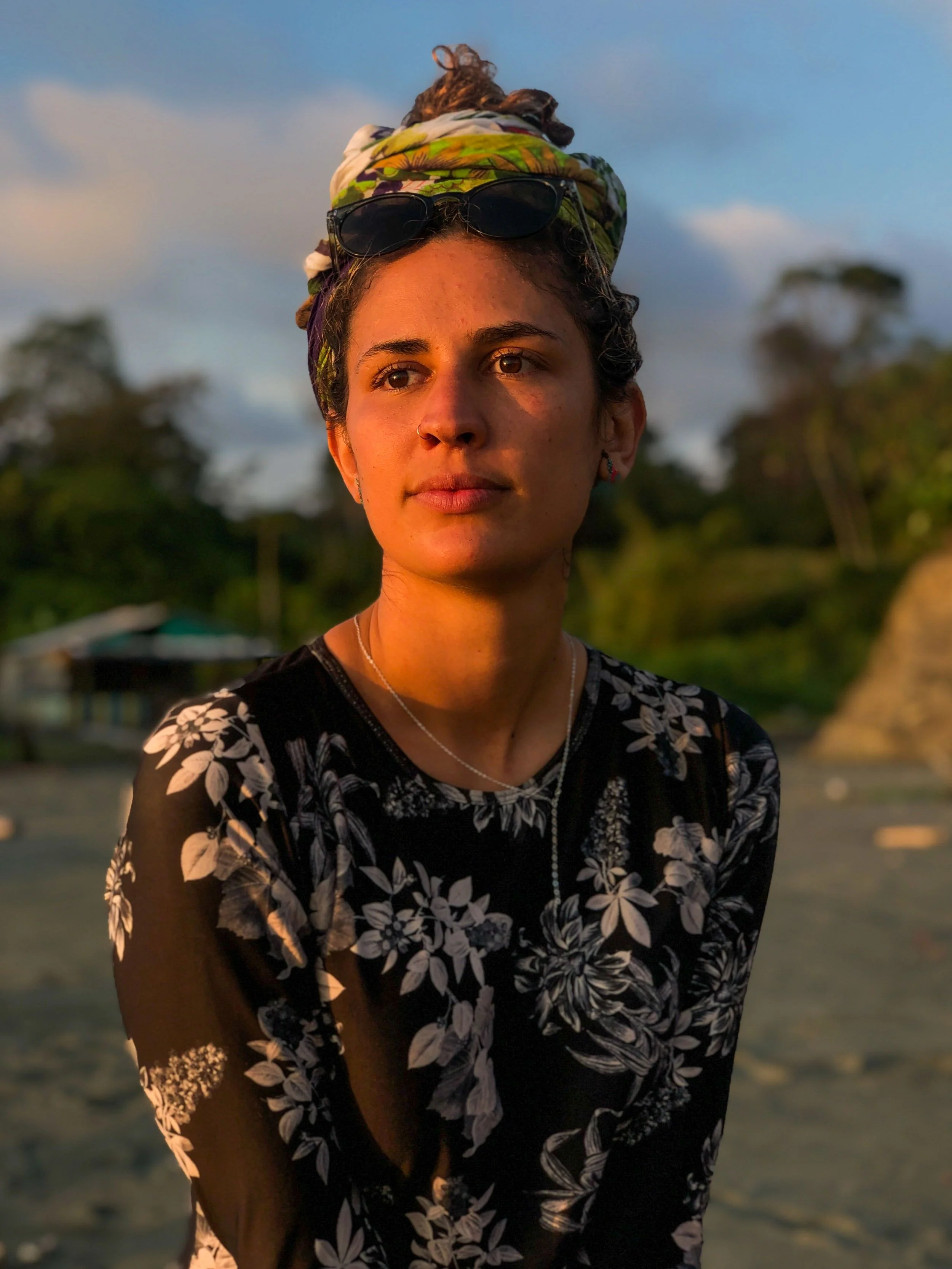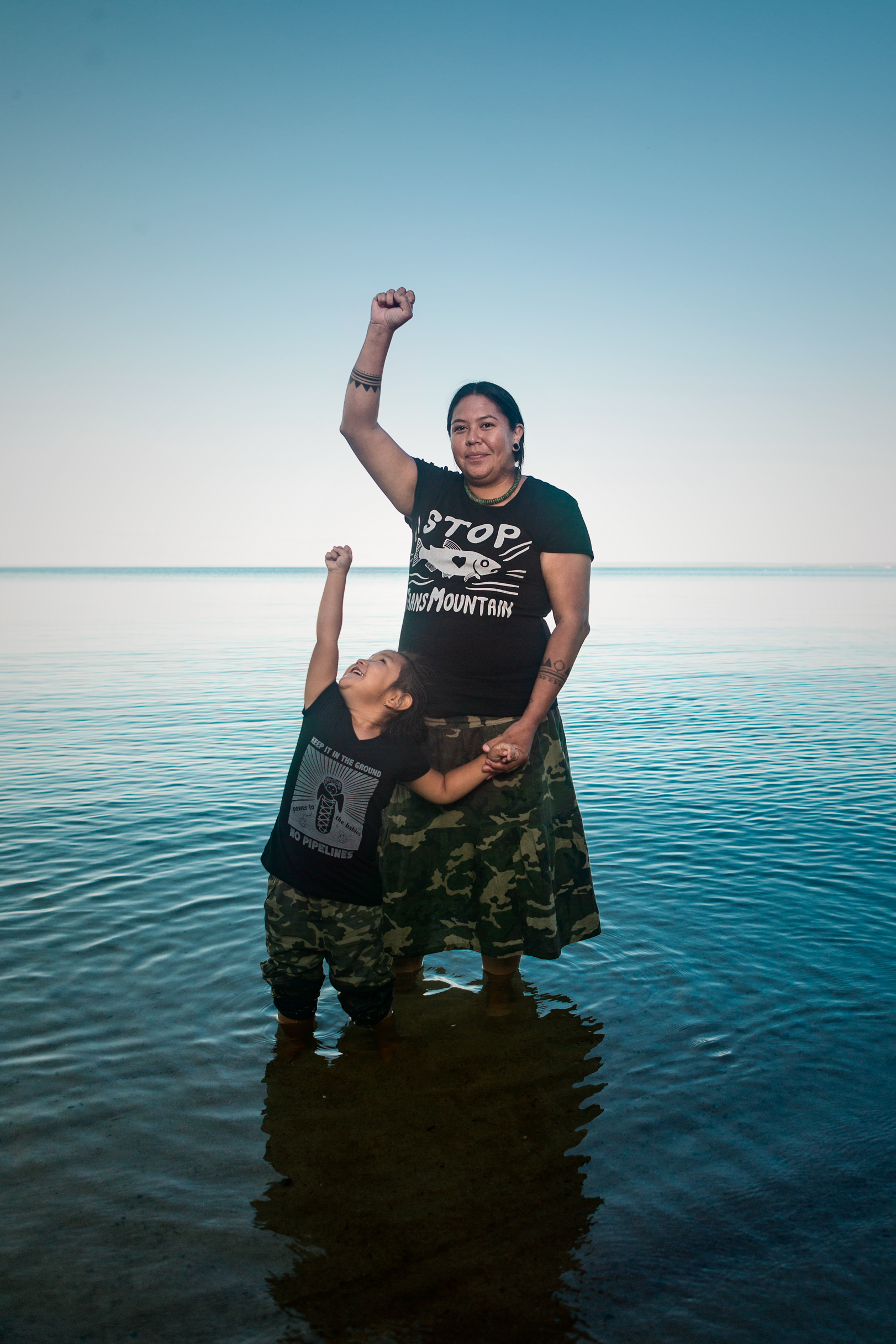What does it mean to be a revolutionary?
To us, it means creating a radical, lasting change. But what kind of change?
It’s important that we be intentional in terms of the type of impact we are having. There is a word in Squamish called Chenchénstway, which means “to uplift one another.” This word contrasts with the idea of “helping.” “Helping,” according to Ta7talíya Michelle Nahanee in her workbook “Decolonize First,” is seen as the double-headed sea serpent from Squamish legends, with “helping” on one head and “harming” on the other.
Colonialism is one example of how “helping”has led, and continues to lead to a great deal of harm. Colonizers assumed that their way and their people were superior to “others” and enforced their project of “civilization,” settling, occupying, extracting and exploiting. Colonialism today takes on many forms that are not always so obvious.
Very recently, the International Panel on Climate Change (IPCC) reported colonialism not only as a driver of climate change but also as an ongoing issue that is putting equity-seeking communities further at risk. So if this is the case, then decolonization is at least one antidote to this ongoing cause that has rooted itself globally. What does that look like, applied to our world?
In many ways, our work at Photographers Without Borders lies at the intersections of documentary storytelling, “conservation,” and “international development.” All three of these fields carry colonial legacies; One need not look further than this apology, this horrific report, or these calls to see how that could possibly be true.
This is why we are so honored to offer the Revolutionary Storyteller Grant in 2022. This grant includes $5000 USD cash among other things, awarded five storytellers who are working alongside land/water protectors and/or regenerative climate change initiatives. Our goal was to find 5 storytellers who are revolutionaries—radically changing the landscape of what it means not only to be a photographer, but also what “conservation” (we prefer the term land/water protection) and climate change mitigation/adaptation efforts can look like when they are created from the ground up.
Please join us in welcoming these five revolutionary storytellers:
Image: Reda Khaled
FATMA FAHMY
@fatmah.fahmy
Fatma Fahmy (b. 1991, Riyadh, Saudi Arabia) is a documentary photographer based in Cairo. Fahmy obtained a B. A degree in Chemical Engineering from Cairo University in 2013. She focuses on environmental and social issues. Through her lens, she wishes to amplify historical and environmental bonds. Fatma uses ethnographic photography practices to create visual narratives, creating an image that mimics the memory of the place and its people. She was the recipient of the Daniele Tamagni Grant at the Market Photo Workshop in 2020. She was nominated for the World Press Photo Joop Swart masterclass in 2018. Her work has been exhibited internationally including at the Cite International des Arts in Paris and the Photographic Angel Exhibition in the UK. Fatma is recently a new contributor, among other renowned photographers, to Everyday Africa & Everyday Egypt & Middleeast images.
We will be sharing more about Fatma’s project soon, and you can follow her on instagram here.
Image: Tatiana Lopez
2. TATIANA LOPEZ
@tatianalopez_om
Tatiana is an Ecuadorian photographer, multidisciplinary artist, and visual anthropologist whose work focuses on themes of identity and belonging, the body as a medium of expression, and the interconnectedness between humans and nature. Her research interests include Indigenous people’s animistic practices, body-territory relations in connection to Indigeneity, and the study of human/non-human relations through dreams. “Photography is a journey of self-discovery, connection, meditation, understanding, and transformation. At the core of my practice, I incorporate collaborative methods of storytelling and creatively use photography and filmmaking as powerful tools to raise awareness about environmental issues, equality, and women’s rights. My first ethnographic film essay “Naku Ikinyu” received the audience award from MAAN (Muestra de Anthropología Visual de Madrid) 7th Edition-2021, and it was selected as one of two winners of the 2021 Graduate Student Award for Outstanding Work offered by The Society for Visual Anthropology.”
We will be sharing more about Tatiana’s project soon, and you can follow her on instagram here.
Image: Bernadette King
3. ALEX MOANA KING
@alexkingphotography
Alex is a Polynesian and Maori photographer, born in Opotiki, on the East Coast of Aotearoa (New Zealand) where her mothers family and tribes descend from Whakatohea, Ngati Porou and Tuhoe.
“I was raised in Rarotonga, Cook Islands, where my father comes from. Our families descend from both the islands of Mangaia and Rarotonga. I’ve realised that my journey through photography in the last 10 years has brought me to a place of understanding how powerful our imagery can change things around us and have an impact socially around the world.
I specialise in portrait photography, photo documentary, storytelling, and wedding photography. I have photographed over 200 weddings and hundreds of portrait sessions with clients from around the world. It is here that I learnt how to craft emotional stories through imagery. I’m also a mother of one and being a mother and running a business alone has been challenging. But being a mother has taught me the most valuable lessons.
In the past 3 years however through photo documentary, storytelling and reconnecting to my culture and community, I have landed in a niche market, as an indigenous photographer, trying to make a positive impact and give back to my communities by challenging the world view on who we are, our identities and our traditions. In the past decade through these challenges I have learnt to focus my attention, on heavy topics limited to social justice, our whenua(land) environment, our Moana(ocean), and the preservation of our culture and identities. These make for powerful rewritten and new narratives, which represent indigenous people in an truthful and authentic place. I’m a proud Indigenous artist and storyteller and this has been my journey of reconnecting to my culture and community through my imagery and storytelling.”
We will be sharing more about Alex’s project soon, and you can follow her on instagram here.
4. AYSE GÜRSÖZ
@yakamoz_ayse
Image: Rudi Tcruz
Ayşe is a photographer, producer, and cinematographer dedicated to storytelling for social impact. Her work for over a decade thematically focuses on environmental justice, revolutionary futurisms, and human rights. The most essential tenet of her work is building authentic relationships that move at the speed of trust, and working together to reach shared goals with meaningful collaboration.
“I identify as an immigrant to Turtle Island (North America), and through my education and learnings through the social movements that I've had the honor of working with around the world, I firmly believe that a viable future for all peoples depends on a massive redistribution of wealth to grassroots movements and land back to Indigenous peoples around the world. My dedication and passion for social justice has taken me from the newsroom at Al Jazeera's social channel, AJ+, to a yurt at Standing Rock, where I was tasked by Indigenous Environmental Network (IEN) to help with launching an Indigenous-led social platform, now called Indigenous Rising Media. I've volunteered with IEN since 2012, and this is an example of one of the relationships I value deeply.”
We will be sharing more about Ayşe’s project soon, and you can follow her on instagram or see her website here.
5. MARIANA RIVERA-URIBE
@la_mar.iana
Image: Juan Cristobal Cobo
“Since I’ve had the capacity of walking on my own two feet, my direction has been towards nature. From collecting crickets and lizards in jars to filling entire books with flower petals and volunteering with whale sharks in the Philippines, nature has always been my inspiration and my purpose. Through my work, I have (and continue to) explore new ways in which images, nature and emotions have the living force to arise consciousness and therefore transform our views on the inner and other world, our daily actions and the impact these have on ourselves, others and the planet.
Mariana has over 8 years of experience working professionally as a photographer, and over 15 with a camera in hand. She also has a BA in Biology which allows her to translate technical and specialized information into common language. She has a Diploma in Documentary Filmmaking from the New York Film Academy in Gold Coast, Australia and has worked as a filmmaker and photographer for the Saving the Amazon Foundation, Alexander von Humboldt Research Institute, the Colombian Ocean Commission, National Parks of Colombia among others and is currently Assistant to the Commission on Ecosystem Management at the International Union for Conservation of Nature (IUCN). Mariana is also co-founder, director and executive producer at Coral Studio, a conservation and underwater studio focused on sharing and raising awareness on the importance of protecting nature through photography and filmmaking.
Mariana was awarded a scholarship in the Impact production workshop in 2021 led by DOCCO Agency in alliance with the Deutsche Welle Akademie, and is also a member of Her Wild Vision and an ambassador for Girls Who Click, two platforms for women conservation photographers and filmmakers worldwide. Mariana’s photographs have been exhibited in several magazines and exhibitions including the Siena Photo Awards 2020 and the Wildlife Photographer of the Year 2021.
“I believe nature, images and storytelling have the power to connect and transform values in societies in order to create a better world, they have the capacity of penetrating the rough layers of rationality and judgment, allowing us to feel vulnerable, and connecting with that we see in order to take action and lead to tangible impacts for nature and for those who protect it. Some examples of my work which has led to direct impact include Expedition Tribuga, a documentary released in 2020, which led to over 20,000 people in Colombia so stand up for the protection of one of the most biodiverse places on earth: the gulf of Tribuga, threatened by what was planned to be the second largest port in Colombia (putting at risk thousands of species of plants and animals as well as afro and indigenous communities). In 2021, the gulf of Tribuga was officially declared a protected area, therefore banning any industrial projects from being developed in the region.”
We will be sharing more about Mariana’s project soon, and you can follow her on instagram here.

